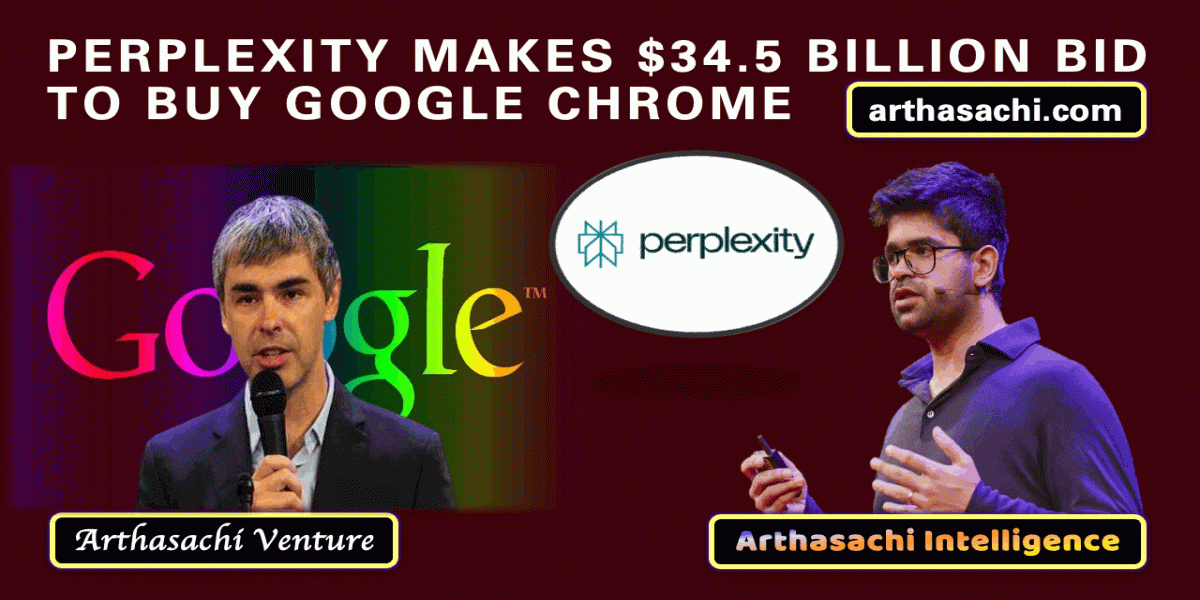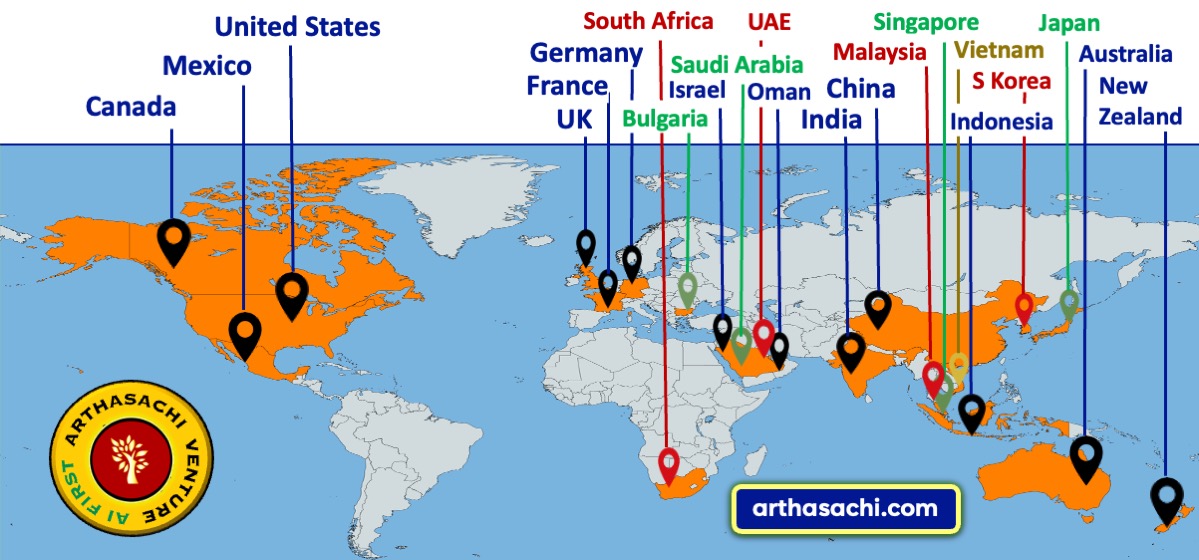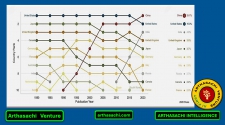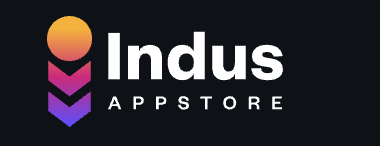
Perplexity Makes $34.5 Billion Bid to Buy Google Chrome: What’s at Stake and What Comes Next
In a move that stunned the tech world, AI startup Perplexity announced an unsolicited $34.5 billion cash offer to acquire Google Chrome, the world’s most widely used web browser with more than three billion users.
Perplexity audacious bid—nearly double Perplexity’s own latest valuation—comes as Alphabet faces mounting regulatory and antitrust pressure that could force a historic change in how users access the internet. Perplexity is backed by prominent investors, including Jeff Bezos, Nvidia, Nat Friedman, and Elad Gil.
“ Celebrating Indian Spirit, a Game-Changer Super Star in Action. An Indian born Scientist Aravind Srinivas a visionary leader who earned dual degrees (B.Tech & M.Tech) from IIT Madras. After an illustrious career with OpenAI, Google Brain, and DeepMind, he embarked on an Entrepreneurial journey, co-founding Perplexity AI — a company now valued at $18 billion in just three years, emerging as a fierce challenger to ChatGPT and ambitiously setting sights on acquiring Google Chrome.
During his recent visit to India, Aravind Srinivas met with PM Narendra Modi to explore the future of AI in India.”
What’s In It for Perplexity?
1. Unprecedented Scale and User Access
Acquiring Chrome would instantly vault Perplexity into the center of global internet infrastructure, granting it access to billions of users and the world’s largest browser distribution channel. For an AI-first company competing with Big Tech, this means unparalleled reach for its generative AI search products and platforms, especially as browsers re-emerge as the front lines for search traffic and user data.
2. Strategic Leverage in AI Search Wars
The AI landscape is shifting: rising competitors like OpenAI and Meta are pouring billions into browser-linked AI experiences. By owning Chrome, Perplexity could accelerate its own AI browser (Comet), challenge Google’s dominant search engine head-to-head, and become a gatekeeper for emerging AI-powered web experiences. Perplexity’s promise to keep Chromium open source and invest $3 billion in its stewardship also signals a bid for developer goodwill and platform longevity.
3. Antitrust Opportunity
The timing isn’t coincidental. US courts recently ruled that Google illegally monopolized online search, with the Department of Justice recommending the divestiture of Chrome to foster fairer competition. By pitching itself as an independent, competent operator and pledging to keep Google Search as Chrome’s default (unless users choose otherwise), Perplexity aims to position its acquisition as the “highest public interest” antitrust remedy—potentially beating out rivals like OpenAI, Yahoo, and private equity firms eyeing the asset.
Why Now?
- Regulatory Pressure: The US government’s antitrust lawsuit against Google has thrown the future of Chrome into question. Multiple remedies—including splitting Chrome from Google—are under judicial consideration, with a decision expected soon. The threat of forced divestiture means Google may have to sell, and Perplexity wants to be first in line with a credible offer.
- AI’s Transformation of Web Search: As generative AI redefines how people seek information online, controlling a browser gives Perplexity the strategic edge needed to integrate advanced chat-based search directly into user experiences, leapfrogging traditional links and ad-driven results.
- Investor Backing: Despite its $18 billion valuation, Perplexity claims it has lined up major venture capital and hedge funds willing to fully finance the buyout—suggesting confidence in both its vision and in Chrome’s untapped value as an AI platform.
The Way Forward for Google and Chrome
Google’s Dilemma
- Resistance and Appeals: Google has firmly signaled it does not intend to divest Chrome and will contest any legal mandate aggressively, labeling the DOJ’s remedy as “unprecedented and radical” with substantial risks to consumers and digital security.
- Strategic Defense: Chrome remains critical to Google's core businesses—search, ads, and increasingly its own AI features like “Overviews.” Losing control of Chrome would mean ceding a globally strategic asset that is key to data collection, user retention, and tech innovation.
- Chrome’s Valuation and Interest: Analysts believe Chrome could fetch up to $50 billion if Google is compelled to sell, with multiple suitors already rumored. Google will likely seek the highest possible terms and may propose alternatives to divestiture or look to package the asset differently if forced.
What Happens to Chrome?
- Open Source Commitment: Perplexity’s bid pledges to keep Chromium open source and invest $3 billion over two years for continued innovation—crucial for ecosystem stability and developer trust.
- User Choice Protections: The startup promises to retain Google as the default search engine (with the option to switch), allaying fears of abrupt changes and reinforcing user autonomy.
- Long-term Availability: Perplexity is committed to uninterrupted support for existing customers for at least 100 months, aiming to soften transition risks and maintain continuity for billions of users.
Conclusion
The $34.5 billion offer for Chrome is both a bold play for control over the gateway to the global internet and a direct response to unprecedented antitrust pressure facing Google. For Perplexity, success means instant scale and strategic primacy in the AI search race; for Google, the stakes are existential, with core digital businesses on the line. Whether Google sells, wins a legal reprieve, or faces forced divestiture, the weeks ahead will redraw the map of the web browser world—and could reshape the future of AI-driven search for billions of users.
MORE INSIGHT INTO THE DEAL
What strategic advantages does Perplexity hope to gain by controlling Chrome's user base
Perplexity seeks several strategic advantages by controlling Chrome's vast user base:
- Immediate Scale and Distribution
Acquiring Chrome would give Perplexity instant access to over three billion users worldwide—making it one of the most widely used platforms for internet activity. This solves a fundamental growth challenge faced by most startups: gaining large-scale distribution without years of incremental expansion. With Chrome, Perplexity could bring its AI capabilities directly to a global audience from day one. - Data Pipeline for AI Model Training and Personalization
Browsers are pivotal gatekeepers for user data and digital interaction. By controlling Chrome, Perplexity would obtain rich, real-time streams of user behavior, web navigation, and search patterns. This data is invaluable for refining its generative AI search engine and enhancing personalized features such as predictive recommendations, AI assistants, and automated workflows—giving it a technical edge over AI search competitors like OpenAI, Microsoft, and Google itself. - Direct Competition and Differentiation in the Browser Market
Taking ownership of Chrome disrupts Google's dominant market position and enables Perplexity to challenge established browsers, leveraging the shift toward AI-powered web experiences. By embedding AI natively into the browser, Perplexity positions itself to define how billions interact with online information—transforming Chrome from a traditional web browser into a dynamic platform for AI-driven user experiences, and differentiating it from rivals which are just beginning to integrate AI. - Regulatory and Business Leverage
Given Google’s antitrust troubles, Perplexity's bid also serves a public interest remedy by offering an independent operator for Chrome, which could appease regulators and open new competitive possibilities in digital advertising, search, and user privacy. Perplexity’s promise to maintain Chromium as open source and keep Google as the default search engine reflects a strategy to ensure ecosystem continuity and stability, further bolstering its pitch to regulators, developers, and users.
Conclusion
In summary, controlling Chrome gives Perplexity a rare opportunity to achieve instant global scale, harness a rich stream of behavioral data for AI development, disrupt Google’s control of the browser/search ecosystem, and position itself at the forefront of the emerging AI-driven web experience.
How Perplexity’s Bid for Google Chrome Could Reshape the Future of Web Browsing and AI Integration
Perplexity’s audacious $34.5 billion bid to acquire Google Chrome stands to transform the web browsing experience and accelerate the convergence of artificial intelligence with internet navigation in unprecedented ways.
1. Browsers as AI Platforms, Not Just Gateways
If Perplexity succeeds, Chrome could evolve from a traditional web access tool into an AI-powered platform where browsing, search, and even content creation are deeply integrated with generative AI. Users would gain access to built-in chat-based search, personalized recommendations, and real-time assistance—moving far beyond static links and manual searches. The browser could act as a persistent, adaptive interface, learning from user behavior and context to automatically surface relevant information, automate workflows, and proactively engage with the web on the user’s behalf.
2. Personalization and Data-Driven Experiences
With direct access to Chrome’s user activity—over three billion people—Perplexity could harness enormous data for training and refining its AI models. This means richer personalization, smarter information retrieval, and seamless cross-device experiences tailored to individuals’ needs. Websites and apps visited through Chrome could increasingly interact with AI-driven features, blurring the lines between traditional browsing, virtual assistance, and productivity tools.
3. Disruption of Search and Advertising Ecosystems
An AI-centric Chrome would disrupt the established dominance of search engines (notably Google Search) by embedding Perplexity’s own generative search directly within the browser. This could shift user habits away from keyword-driven queries and paid results, towards conversational search and AI-summarized answers. The advertising business may pivot from static banners and sponsored links to dynamic, AI-targeted experiences and commerce recommendations generated in real-time as users browse.
4. New Standards for Privacy and Openness
Perplexity’s promise to keep Chromium open source and maintain interoperability with multiple search providers responds to regulatory pressures and developer concerns, potentially fostering more competitive, transparent, and secure browser environments. This could set new standards for privacy, data consent, and innovation, as browsers become platforms for open AI experimentation—contrasting the closed ecosystems of mobile and cloud apps.
5. Acceleration of AI Integration Across the Web
Owning Chrome enables Perplexity to rapidly deploy new AI features at scale: from visual search and voice assistance to collaborative real-time tools and knowledge graphs constructed on-the-fly. Developers would have direct APIs and plug-ins for embedding AI directly in web applications, catalyzing a new era of AI-powered user experiences.
6. Potential Fragmentation and Innovation
Major browsers (Edge, Firefox, Safari) may respond by integrating their own advanced AI—speeding up innovation but possibly causing fragmentation in web standards and user experiences. Nonetheless, the competition would likely drive a surge in AI features, including multimodal browsing, intent prediction, and secure automation.
Conclusion
In essence, if Perplexity controls Chrome, the browser would become the world’s leading AI platform—reshaping how billions interact with the web, redefining personalization, and placing generative AI at the heart of digital life. It’s a pivotal move that could accelerate the transition from manual browsing to intelligent, proactive, and deeply personalized online experiences.
Top News
Other News
MARKETS
WEALTH
ECONOMICS
START UP
TECHNOLOGY
BUSINESS
Alliances and Partners

Arthasachi Venture Footprints

















